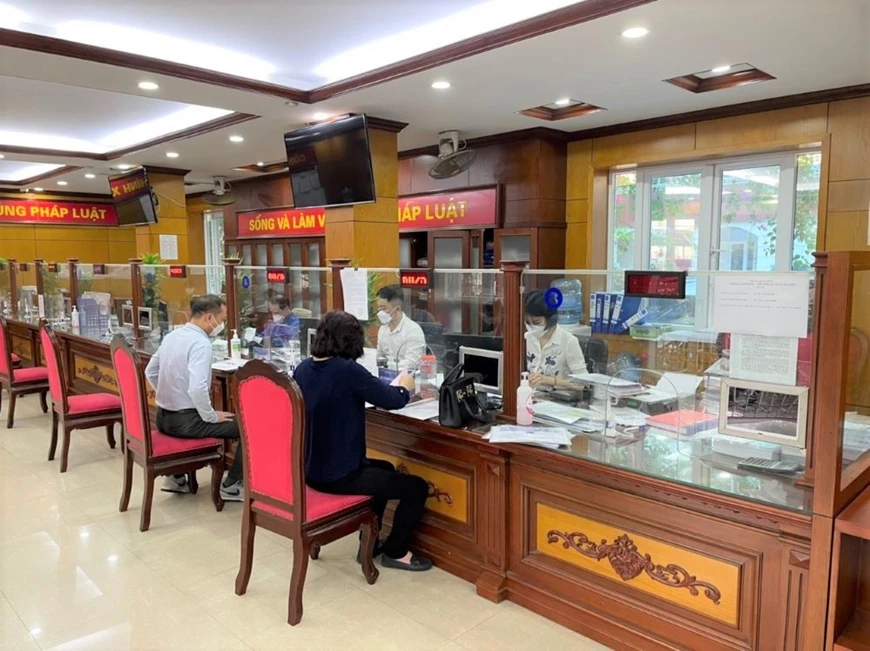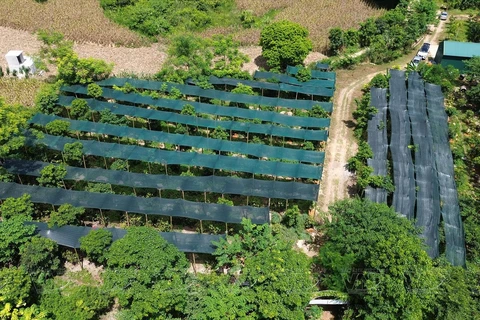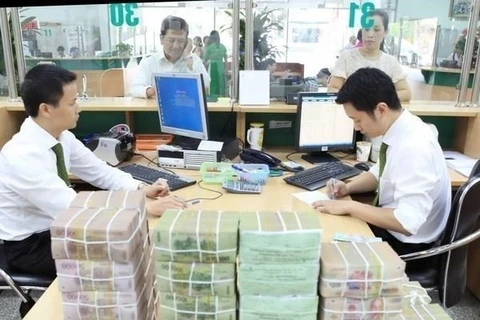
Hanoi (VNA) – Hanoi authorities have sketched out a project piloting a public administrative service centre as part of the efforts to create breakthroughs in administrative reform and raise the capital city’s competitiveness and public satisfaction.
Over the past years, all-level authorities in Hanoi have paid attention to administrative reform, aiming to remove legal bottlenecks and streamline procedures, thus spurring local comprehensive economic development.
However, limitations still remain in administrative reform, adversely affecting the city’s business environment and development indicators.
Specifically, its Provincial Competitiveness Index (PCI) has seen a steady decline, from the 10th place in 2021 to the 18th in 2022, and then to the 28th out of the 63 provinces and cities last year.
Meanwhile, its Satisfaction Index of Public Administration Services (SIPAS) remains average nationally, ranking 21st.Traditional operational methods have exposed their shortcomings such as the lack of independence, as well as a city-level specialised agency in charge of coordinating, supervising, and ensuring transparency in the reception and resolution of administrative procedures, and inadequate attention to improving public satisfaction.
Moreover, the quality of online public services remains low in many areas, and efforts in assisting citizens and businesses appear superficial. The rate of digitalisation of records and the reuse of digital information and data remains limited, leading to the low satisfaction among the organisations and individuals.
Although computers are available at the offices of all-level People’s Committees to enable residents to process administrative procedures through software, not many officials are capable of mastering them and guiding locals, especially the elderly, to complete online steps.
To raise the quality of administrative procedure resolution in Hanoi and reinforce its status as the political and economic centre of the country, the Prime Minister has made relevant instructions.
According to the Government Office’s Notice No. 323/TB-VPCP dated July 15, 2024, the PM asked the city to focus on refining mechanisms and policies, improving its investment and business environment, improving competitiveness, and reviewing review, reducing, and simplifying administrative procedures related to investment, production, business, and citizens' daily lives.
The aim is to eliminate or streamline at least half of the existing regulations and administrative procedures, while cutting compliance costs by at least 50%.
The Government leader urged the municipal People's Committee to establish a pilot model for a one-stop public administration service centre under its management.
The centre will receive, handle, and monitor the implementation of administrative procedures, and provide public services through a one-stop-shop mechanism. The pilot model is set to run from September 2024 to November 30, 2025.
The People’s Committee said it has worked on the project which allows residents to complete administrative procedures at any reception branch, rather than visiting administrative offices in their place of residence.
In addition, the entire process will be digitalised, automated, and interconnected among departments, agencies, and all-level People’s Committees, helping save time and ensure transparency.
Earlier, Hanoi put in place the iHaNoi app that is set to enhance online interactions between citizens, businesses, and local authorities on the digital environment.
The initiative is part of Project 06, which will develop population data, identification, and e-authentication applications by 2030, in line with Prime Minister Pham Minh Chinh's directives for Hanoi's digital transformation. It aims to enhance transparency and increase the participation of citizens and businesses, thereby strengthening public trust in the municipal authorities.
Hanoi strives to be a leading locality of digital government, economy, society, and citizens, towards building a civilised and modern capital city and maintaining high rankings in the Public Administration Reform (PAR) Index and the SIPAS./.






















